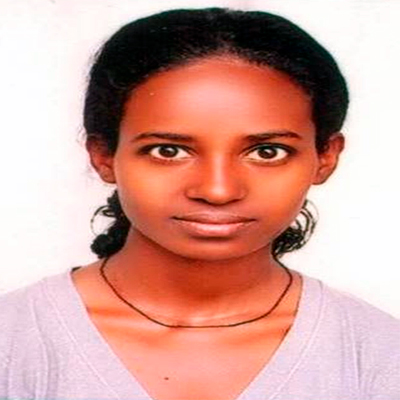Experts
List of experts related to Booster project.

Adesike Oladoyin
Ladoke Akintola University
Country: Nigeria
Currently looking at the performance of some biofortified maize inbred lines under a range of nitrogen fertilizer levels. After which I intend to develop single-cross F1 maize (Zea mays L.) hybrids from selected superior pro-vitamin A (PVA) quality protein maize (QPM) inbreds following the diallel mating design scheme.

Charles Mutimaamba
Team leader with the national program
Country: Zimbabwe
As team leader with the national program, won the inaugural “Presidential Award for Outstanding Research in Zimbabwe in 2015” in recognition of the development and release of one of the country’s most popular and flagship climate-resilient maize cultivar ZS265, currently being produced and marketed by more than 5 local seed companies.

Richard Akinwale
Obafemi Awolowo University
Country: Nigeria
Conservation and management of orphan crops germplasm of tropical origin. Breeding maize and other tropical crops for tolerance to major production stresses such as drought at vegetative, flowering and grain filling stages, soil low N, Striga hermonthica parasitism, fall armyworm infestation and Exserohilum turcicum infection using conventional and modern breeding techniques. Breeding maize for improved seed quality traits as well as Fe and Zn contents.

Mizan Tesfay Abraha
Ethiopian Agricultural Transformation Institute
Country: Ethiopia
Mizan joined Tigray Agricultural Research Institute (TARI) since 2007, as crop research officer. She completed her MSc and PhD studies in 2010 and 2017, respectively and continued to work as a crop researcher at TARI. She specialized in the field of plant breeding and has been responsible in identifying the tef and wheat crops production problems, developing and implementing research projects for developing user demanded improved tef and wheat varieties in Ethiopia, data collection and management and report writing.
INSTITUTION
Ladoke Akintola University of Technology
Country
Nigeria
Crop
Maize
adesike@yahoo.com
Website
lautech.edu.ng
Previously, I have worked on the:
- Phenotypic assessment of several maize (Zea mays L.) varieties and hybrids for grain yield and other agronomic traits in the Derived Savanna Agro-ecology of Nigeria.
- Evaluation of newly developed single-cross F1 maize (Zea mays L.) hybrids under contrasting soil nitrogen conditions in the Derived Savanna Agroecology of Nigeria.
- The inheritance of the number of days to flowering in maize (Zea mays L.), I establish that epistasis actively influences the inheritance of this trait.
- Development of high-yielding maize (Zea mays L.) S1 testcrosses tolerant to foliar diseases by extracting them from two genetically complementary tropical maize composites through reciprocal recurrent selection.
- Development of high-yielding varietal maize (Zea mays L.) hybrids that private seed companies in West and Central Africa may certify for seed quality. These hybrids may serve as an alternative profitable source of seed and may be marketed in areas with limited market access.
INSTITUTION
Tocek Zadzamatura (Private enterprise)
Country
Zimbabwe
Whilst in the same role, contributed to a multi-stakeholder formulation of a gender-sensitive industrial food fortification strategy spearheaded by the ministries of agriculture, health and industry to improve household nutrition security, which resulted in the successful mainstreaming of biofortified crops into national agriculture, nutrition and health strategies and policies. As HarvestPlus Zimbabwe country manager, pioneered the country’s first nationwide development and dissemination of high iron bean, vitamin A orange maize and orange fleshed sweet potato (OFSP) in 2017 under a US$5 million FAO managed biofortification program funded by UK’s Foreign, Commonwealth and Development Office (FCDO) which reached over a million rural farmers with biofortified crops in less than 4 years. Whilst with HarvestPlus, provided technical support to public and private seed companies, the national program and NGOs, in partnership with CIMMYT, IITA, CIAT and CIP to develop, test, register and commercialise nutrient-dense and climate-resilient beans, maize and OFSP. This resulted in the release of 5 high-yielding vitamin A maize and 2 iron bean cultivars which led to improved food and nutrition security through nationwide adoption, production, processing and consumption of iron beans, vitamin A maize and OFSP.
INSTITUTION
Obafemi Awolowo University
Country
Nigeria
Other Professional Accomplishments:
- I have authored and co-authored over 50 scientific articles published in reputable local and international journals.
- I have supervised and co-supervised 15 Masters and Doctor of Philosophy Students in the field of Plant Breeding and Genetics
- I am highly proficient in field plot technique, conduct and management of breeding trials at local, national, regional and international levels, analysis and management of data generated from such trials using statistical software such as Microsoft excel, SAS, GENSTAT, FieldBook, Breeding Management System and GGEBiplot.
Direction for Future Research:
- My future projection is to explore the use of machine learning algorithm and artificial intelligence for better phenotyping (phenomics) of crops responses under stress conditions and for predicting crop hybrid performance
- Use of molecular techniques in enhancing tolerance of crops to production stresses and nutritional quality.
Country
Ethiopia
INSTITUTION
Ethiopian Agricultural Transformation Institute
POSITION
Project officer
Crop
Teff and Sorgum
Dr. Mizan Tesfay Abraha
Mizan is interested in collaborating with the BOOSTER project in providing feedback on the outputs of the project related to tef drought tolerance improvement and further in utilizing and disseminating the results of the BOOSTER project for further tef productivity enhancement.
Mizan joined Tigray Agricultural Research Institute (TARI) since 2007, as crop research officer. She completed her MSc and PhD studies in 2010 and 2017, respectively and continued to work as a crop researcher at TARI. She specialized in the field of plant breeding and has been responsible in identifying the tef and wheat crops production problems, developing and implementing research projects for developing user demanded improved tef and wheat varieties in Ethiopia, data collection and management and report writing. During her stay at the institute she has involved in identifying and delivering improved tef varieties namely Quncho, Kora and Bosset and bread wheat varieties named as Mekelle-01, Mekelle-02, Mekelle-03 and Mekelle-04 etc , which have widely adopted by farmers in the Tigray region, Ethiopia and contributed in improving tef and wheat productivity.
Since April 2023, she joined the Ethiopian Agricultural Transformation Institute (ATI), as project officer of the Institutional support for the seed system in Ethiopia (ISSSE) project, which is addressing systematic bottlenecks in the early generation seed production and marketing, seed quality assurance and policy, legislatives and regulations
- Abraha, M.T., H. Shimelis, T. Solomon and A. Hailu. 2019. Genotype-by-environment interaction and selection of elite wheat genotypes under variable rainfall conditions in northern Ethiopia. Journal of Crop Improvement. https://doi.org/10.1080/15427528.2019.1662531.
- Abraha, M.T., H. Shimelis, M. Laing, and K. Assefa. 2018. Gene action ccontrolling yield and yield-related traits among tef [Eragrostis tef (Zucc.) Trotter] populations under drought-stressed and non-stressed c Plant Breed. 00:1–13. https://doi.org/10.1111/pbr.12606
- Abraha, M.T., H. Shimelis, M. Laing, and K. Assefa. 2017. Early generation genetic variation and heritability of yield and related traits among tef populations. Journal of Crop Science and Biotechnology. https://doi.org/10.1007/s12892-017-0087-0
- Abraha, M.T., H. Shimelis, M. Laing, and K. Assefa. 2016. Selection of drought-tolerant tef (Eragrostis tef) genotypes using drought tolerance indices. South African Journal of Plant and Soil 2017: 1–10. DOI: 10.1080/02571862.2017.1300696.
- Abraha, M.T., H. Shimelis, M. Laing, and K. Assefa. 2016. Genetic variation and trait association of tef [Eragrostis tef (Zucc.) Trotter] evaluated under optimal and moisture stressed environments. Australian Journal of Crop Science. 241-247. doi: 10.21475/ajcs.17.11.03.pne69
- Abraha, M.T., H. Shimelis, M. Laing, and K. Assefa. 2016. Diagnostic assessment of the production status, constraints and farmer-preferred traits of tef [Eragrostis Tef (Zucc.) Trotter] under drought-prone environments. Transylvanian Review 24:926-939.
- Abraha, MT., H. Shimelis, M. Laing and K. Assefa. 2016. Achievements and gaps in tef productivity improvement practices in the marginal areas of Northern Ethiopia: implications for future research directions. International Journal of Agricultural Sustainability. DOI:10.1080/14735903.2016.1173990
- Abraha, MT., H. Shimelis, M. Laing, and K. Assefa. 2016. Performance of tef [Eragrostis tef (Zucc.) Trotter] genotypes for yield and yield components under drought-stressed and non-stressed conditions. Crop Science.DOI: 10.2135/cropsci2015.07.0449
- Abraha, M.T., Shimelis, M. Laing, K. Assefa andB. Amelework. 2016. Assessment of the genetic relationship of tef (Eragrostis tef) genotypes using SSR markers. South African Journal of Botany. DOI:10.1016/j.sajb.2015.12.009.
- Abraha, M.T., S. Hussein, M. Laing and K. Assefa. 2015. Genetic management of drought in tef: Current status and future research directions. Global Journal of Crop, Soil Science and Plant Breeding. 3: 156-161.
- Mehari, M., M. Tesfay, H. Yirga, A. Mesele, T. Abebe, A. Workineh and B. Amare. GGE biplot analysis of genotype-by-environment interaction and grain yield stability of bread wheat genotypes in South Tigray, Ethiopia. Communications in Biometry and Crop Science. 10:17–26.
- Mehari, M., S. Alamerew, B. Lakew, H. Yirga and M. Tesfay. 2014. Parametric stability analysis of malt barley genotypes for grain yield in Tigray, Ethiopia. World Journal of Agricultural Sciences. 10: 210-215.
IDConsortium
IDConsortium is a Spanish private company, proactive and skilled in integrated management, dissemination and exploitation of R&D and innovation (Research, Development and innovation) of all types of private companies, as well as regional, national and European organizations. It was funded in 2009.
More information:
Its performance is mainly based upon the listed strategic lines:
- Internationalisation of Research and Innovation in Spain, through the creation and dynamization of European Consortia with high visibility in Spain in order to develop Research and Innovation activities.
- Collaboration in research, development and innovation project designs and planning, starting at the preparation phases all the way to their execution.
- Management of financial lines that are unlike the traditional Financial Entity ones, for company investment projects and all other types of entities.
- The management of the dissemination and exploitation of results in R&D projects.
Role in the project:
IDConsortium is leading the work package 5 devoted to to improve public understanding of biotechnology and bioeconomy in the context of the EU strategies and implementation of the stakeholders’ involvement to achieve project outcomes and impacts.



